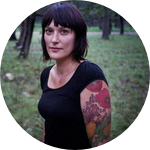About This Project
The Zika virus outbreak is an international public health emergency, and is linked to microcephaly and Guillain-Barre Syndrome. Zika virus spreads by mosquitoes and likely through sexual contact. We do not know how the news and media coverage of the outbreak is affecting American women of childbearing age. We will survey at least 800 women in the U.S. states bordering Mexico asking if they are changing their sexual practices, contraception use, and travel as a result of the Zika virus outbreak.
Ask the Scientists
Join The DiscussionWhat is the context of this research?
The WHO and the Centers for Disease Control and Prevention (CDC) have identified the causal links between Zika virus and microcephaly, Guillain Barre Syndrome, and other health outcomes. On March 15, research published in The Lancet estimated the risk of microcephaly after a Zika infection during pregnancy to be 1 in 100. New climate simulations demonstrate that certain Southern parts of the U.S.A. could see active mosquito-borne transmission of the virus, especially during summer months. Fear of Zika virus is leading to increased media coverage, health warnings, travel restrictions, and uncertainty. Zika virus continues to be a trending topic on several social media platforms, with users expressing concerns about travel plans, pregnancies, and the increasing number of confirmed cases.
What is the significance of this project?
We want to know how news, fear, and uncertainty associated with the Zika virus are impacting the sexual practices, selection of sexual partners, contraception use, and travel plans of women of childbearing age in the United States.
If Zika continues to spread, we will be able to use the data from this survey and compare it to birth records and reports of birth defects to further our understanding of the impact of this international public health emergency. If Zika does not manifest in the scale and scope currently projected, the findings from this study will provide data about behavioral changes in response to media attention and risk perception from a novel international public health emergency.
What are the goals of the project?
The goal of our project is to understand the behavioral impacts of an international public health emergency. We want to know if and how fear of Zika virus is causing women of childbearing age to change their behaviors related to starting a family, contraception, and travel. Through this research we will be able to begin to understand the knowledge, perceptions, and behavioral changes associated with Zika virus among women of childbearing age throughout the border states region. The results of our research will inform health communications, policies, and prevention programs aimed at diminishing the disastrous consequences of this and future disease outbreaks.
Budget
To understand behavior changes associated with the Zika virus outbreak, we need to get our research started as soon as possible -- while #zikavirus is trending on Twitter and being discussed and debated by 100s of 1000s of people on Facebook. We are asking for funds to use a third-party contractor (www.survata.com) to administer the online survey we plan to develop. Survata will find respondents to complete the survey QUICKLY; additionally they will serve as a constant during the development of the survey instrument. Our goal is to collect survey responses from at least 800 women of childbearing age during this pilot project. In collaboration with Survata, we will target women of childbearing age who live in states that border Mexico (Arizona, California, New Mexico, and Texas) and gather responses in the coming months. With this sample size, we will be able generalize the results to all women of childbearing age living along the U.S.-Mexico boarder.
Endorsed by
Meet the Team
Affiliates
Affiliates
Team Bio
Becky and Amelia are committed to improving human health. Amelia is an economist; Becky is an epidemiologist. Together they teach and conduct research as part of the Global Health Studies Program at Allegheny College. Much of their work involves working closely with undergraduate students to address major global health challenges, including the impact of the Zika virus. Both are mothers, who are seeking both professionally and personally to create a healthier world for their children.
Becky Smullin Dawson
I am an Assistant Professor of Global Health Studies and Biology at Allegheny College. My research and teaching interests, and truly my professional passion, lie at the intersection of public health research and environmental science. Complementing the work of Dr. Darrouzet-Nardi, I conduct disease detective research to understand what causes disease. I've recently become interested in understanding how not knowing what causes a disease impacts human behavior -- do we act differently? change our behaviors as preventative measures? in the absence of information.
At Allegheny College, I teach classes in Epidemiology, Sex and Health, and Global Health Challenges, such as global polio eradication and gun violence. I love teaching and working with student researchers. For the past three years, I have collaborated with more than 20 undergraduate students to complete a community health needs assessment in Crawford County, PA. Our work has been highlighted in the journal Health.
I am excited to involve student researchers and those in my classes in this Zika virus research!
I completed my Master of Public Health degree with a focus on environmental health at Emory University’s Rollin School of Public Health and PhD in epidemiology at the University of Maryland, Baltimore (UMB). Prior to my PhD studies, I worked at the Association of State and Territorial Health Officials (ASTHO) in Washington, DC. As the Director of Environmental Health Policy, my work focused on children's health and the environment, as well as mosquito control.
I lead an active lifestyle as a mom of two kids and enjoy running marathons with my husband.
Amelia Darrouzet-Nardi
I am an economist, interested primarily in maternal and child nutrition. I teach in the Global Health Studies Program at Allegheny College in Meadville, Pa. Complementing Dr. Dawson’s work as an epidemiologist, I study how people make health-related decisions, and how these decisions aggregate in societies.
At Allegheny College, I teach classes in nutrition, food economics, and methods in global health research and practice. In coursework and as research assistants, my students design efficacious interventions for improving maternal and child nutrition, investigate how current events affect the food economy, analyze real-world data on food security, and explore the multidimensional linkages between health, demographics, the economy, and the environment.
I completed my B.S. in Applied Mathematics and Statistics at Stony Brook University, my M.S. in Agricultural Economics at Iowa State University, and my PhD in Nutrition at Tufts University. While at Iowa State University, I studied global changes in food demand at the Center for Agricultural and Rural Development. I completed my dissertation while living in the Democratic Republic of the Congo as a U.S. Borlaug Fellow in Global Food Security, focusing on the seasonal and climatic risks to child health, such as vector-borne diseases. My training and research experiences allow me to address global health issues with an interdisciplinary perspective.
I enjoy playing Magic: The Gathering with my husband, watching Charmed, and playing with my two young kids.
Lab Notes
Nothing posted yet.
Project Backers
- 104Backers
- 113%Funded
- $2,441Total Donations
- $23.47Average Donation









